From the February 26, 1999 Chicago Reader. July 2014 postscript: This fascinating and neglected film, still my favorite among the Nobuhiro Suwa features that I’ve seen, has become available on a French DVD released by Capricci — see the first image below — albeit with (optional) French subtitles only. — J.R.
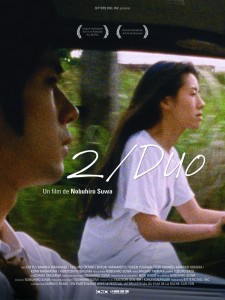
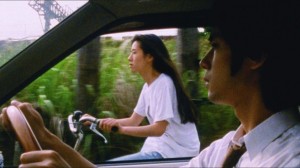
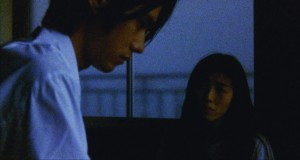
2/Duo
Rating *** A must see
Directed by Nobuhiro Suwa
Written by Suwa, Eri Yu, and Hidetoshi Nishijima
With Yu, Nishijima, and Makiko Watanabe.
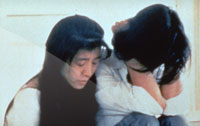
The first feature of Nobuhiro Suwa, a director of TV documentaries in his mid-30s, 2/Duo (1996) is the penultimate work in the Doc Films series “Japanese Cinema After the Economic Miracle: Masaki Tamura, Cinematographer.” Having seen only one other film in the series — Shinsuke Ogawa’s remarkable two-and-a-half-hour documentary about the lives of farmers protesting the construction of Japan’s biggest airport, Narita: Heta Village (1973) — I can’t give a comprehensive account of Tamura’s work. But judging from these two very different features, I suspect I might recognize his shooting style without seeing his name in the credits. Though Narita: Heta Village is a documentary and 2/Duo a fictional narrative, the style of both displays a highly intuitive engagement with the characters, expressed most clearly in the way Tamura places and moves his camera in relation to them, neither anticipating their actions nor dogging them, but navigating the spaces they occupy with an intelligence that manages to project empathy as well as independence — a rare combination. Read more
From the Chicago Reader (August 31, 2001). Today (September 2, 2014), having recently reseen this movie, I’d probably give it a higher rating. — J.R.

The Curse of the Jade Scorpion
Rating ** Worth seeing
Directed and written by Woody Allen
With Allen, Helen Hunt, Dan Aykroyd, Brian Markinson, Elizabeth Berkley, Charlize Theron, Wallace Shawn, and David Ogden Stiers.

I don’t want to oversell Woody Allen’s 31st feature, which I happen to like. The script is full of holes, most of the one-liners are weak and mechanical, and the plot — a nightclub magician gets two of his hypnotized subjects to steal jewels for him — is so deliberately stupid and contrived that one can probably enjoy it only by pretending it’s a routine, low-budget second feature on an old-fashioned double bill, which is obviously what Allen intended. Yet it’s possible for a picture to be not very good and still be likable — something that doesn’t happen very often for me with Allen’s pictures. (It happened, momentarily, in Everyone Says I Love You — when Allen exposed his vulnerability by singing the first 16 bars of “I’m Thru With Love.”)

The problem with most escapism nowadays is that even if it makes you forget who and where you are, it doesn’t really detach you from norms of the world you’re living in. Read more
From the Chicago Reader (September 10, 2004). I think I underrated The Five Obstructions, which I now regard as my probable favorite of von Trier’s films, after having reseen it, remastered, on the DVD recently released by Kino Lorber. One obvious advantage to seeing it on DVD is that Leth’s 1967 short, The Perfect Human, is included in its entirety as an extra, and even though I find it less interesting than the various “remakes” included in The Five Obstructions, finally getting a chance to see it in its entirety makes the Leth and von Trier feature a lot more satisfying and interesting. — J.R.
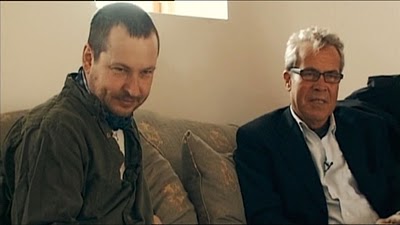

The Five Obstructions
** (Worth seeing)
Directed and written by Jorgen Leth and Lars von Trier
With Leth, von Trier, Claus Nissen, Maiken Algren, Daniel Hernandez Rodriguez, Vivian Rosa, Patrick Bauchau, and Alexander Vandernoot.
What the Bleep Do We Know?
** (Worth seeing)
Directed by Mark Vicente, Betsy Chasse, and William Arntz
Written by Arntz, Chasse, and Matthew Hoffman
With Marlee Matlin, Elaine Hendrix, John Ross Bowie, Robert Bailey Jr., Barry Newman, and Larry Brandenburg.
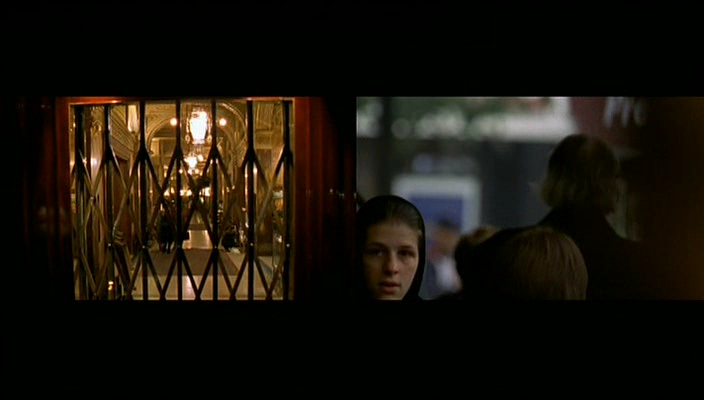
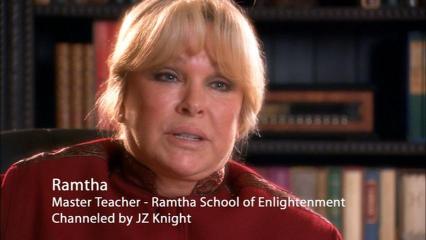
When is an “experimental film” not an experimental film? This might seem a niggling matter to the ordinary paying customer, but it’s a serious issue for artists who’ve devoted their careers and lives to experimental filmmaking, knowing that they’ve given up the possibility of a wide audience by doing so. Read more











